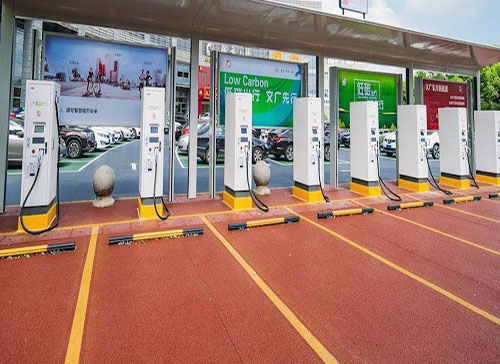11/5/2025
With the accelerating electric vehicle revolution, both novice and experienced EV drivers face a common question regarding public charging facilities: Do charging stations provide their own cables, or do I need to bring my own? The answer isn't straightforward; it largely depends on your desired charging speed—DC fast charging versus AC Level 2 charging. Understanding this difference is key to ensuring a smooth charging experience.
When you pull into a DC fast charging station (such as those using CCS, CHAdeMO, or proprietary standards), you can breathe a sigh of relief. These high-power units-typically 50kW and above-are almost all tethered, meaning bulky, dedicated cables are permanently integrated into the charging station.
This integration is crucial. High-power output requires specialized, even liquid-cooled or extra-thick gauge cables to ensure safe and efficient energy transfer. For operators, fixed cables also reduce the risk of theft and ensure the correct charging equipment is always available. Conclusion: If you're at a highway service area or a major fast-charging center, expect fixed charging stations.
However, the situation is quite different at standard AC Level 2 charging stations (up to 22kW). These charging stations, common in city parking lots, shopping malls, and residential areas, are typically untethered—providing only a socket, not a cable.
Why this difference?
Cost and Maintenance: Untethered charging stations are less expensive to install and maintain. They avoid the wear and tear and replacement costs of permanent cables.
Universal Sockets: This design allows drivers to connect their own Mode 3 charging cable, acting as a bridge between the charging station and the vehicle. This standard ensures maximum flexibility, especially in areas with diverse plug types.

Whether a charging station is fixed or untethered is largely influenced by geography:
For a seamless EV journey, our advice is clear: invest in a high-quality, robust portable AC charging cable. Having your own Mode 3 cable (or Type 2 connector) eliminates range anxiety from encountering cableless charging stations.
Beyond preparation, using a personal cable gives you control over the quality of your connection. NexwayEV's range of EV charging stations and connectors is designed for durability and optimal current flow, ensuring you get the fastest, most reliable charging wherever your journey takes you. Always check the type of charging station (fixed/non-fixed) in advance using the charging app.
In short, high-power DC charging stations typically come with cables. Standard AC charging stations, especially in Europe, often do not. Your portable AC cable is more than just an accessory; it's a key piece of equipment for maximizing your access to the ever-expanding public charging network. Don't be caught off guard—make sure you're fully equipped.
The following are our popular EV charging products that you may be interested in. If you have any questions, please feel free to contact us, and our specialists will answer within 24 hours.